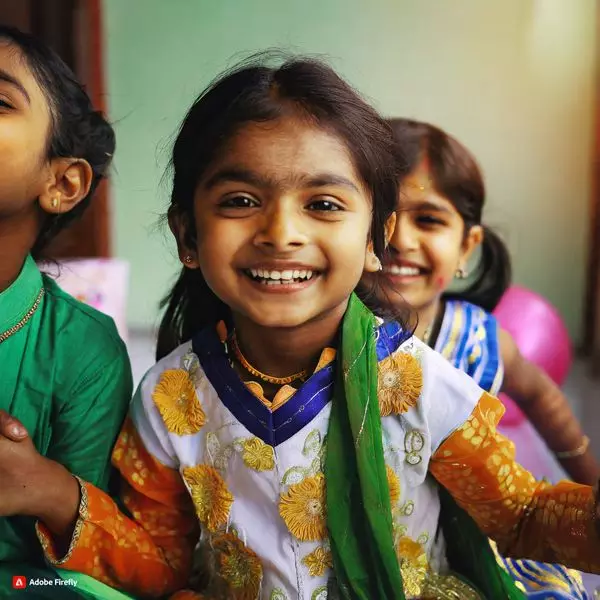
Bal Diwas 2023: Everything You Need To Know About History & Significance Of Children's Day
Writer: Tanya Chaturvedi
As a dedicated content writer, I thrive on the art of storytelling through various media forms. My passion lies in creating engaging, informative and visually captivating content that resonates with audience across platforms.
India, 14 Nov 2023 12:06 PM GMT
Editor : Ankita Singh |
A literature lover who likes delving deeper into a wide range of societal issues and expresses her opinions about the same. Keeps looking for best-read recommendations while enjoying her coffee and tea.
Creatives : Tanya Chaturvedi
As a dedicated content writer, I thrive on the art of storytelling through various media forms. My passion lies in creating engaging, informative and visually captivating content that resonates with audience across platforms.
The tradition of observing November 14 as Children's Day was established in 1957 through a government notice, highlighting the visionary approach Pandit Nehru had for the nation's children.
As Children's Day approaches every year on November 14, India gears up to celebrate the rights, welfare, and education of its youngest citizens. This significant day also marks the birthday of the first Prime Minister of Independent India, Pandit Jawaharlal Nehru, affectionately known as 'Chacha Nehru.'
The tradition of observing November 14 as Children's Day was established in 1957 through a government notice, highlighting the visionary approach Pandit Nehru had for the nation's children. Also known as Bal Diwas, this day holds special significance, emphasizing the profound love and care that Chacha Nehru had for kids.
On this day in 1951, Pandit Nehru, recognizing the importance of cinema in children's lives, founded the Children’s Film Society India to create films exclusively for young audiences.
"I have always felt that the children of today will make the India of tomorrow, and the way we bring them up will determine the future of the country," expressed Pandit Nehru in a 1955 interview.
History and Significance:
While officially declared in 1957, the concept of Children's Day was envisioned years earlier. A United Nations Social Welfare Fellow, VM Kulkarni, proposed the idea of observing Nehru's birthday as a Flag Day to raise funds for underprivileged children, drawing inspiration from Queen Elizabeth II’s Flag Day for Save the Child Fund.
Pandit Nehru initially hesitated, but eventually accepted the proposal, leading to the organization of an International fair by the Indian Council for Child Welfare (ICCW) in 1951.
Children's Rights and Privileges:
Children's Day serves as a reminder of the rights and privileges bestowed upon kids. In 1992, the Indian government confirmed the UN Convention on the Rights of the Child, outlining fundamental rights for children, including the right to survival, protection, participation, and development.
According to the Indian Constitution:
- Article 21-A provides free and compulsory education for children aged 6-14.
- Article 23 prohibits the trafficking of children.
- Article 24 prohibits child labor in hazardous occupations.
Celebrations and Observations:
Children's Day is a joyous occasion celebrated nationwide. Schools organize programs and entertaining performances for children, showering them with love and gifts consisting of eatables, books, and cards.
In the wake of the pandemic, many schools adapted by organizing virtual celebrations. With lockdowns lifted and schools reopened, this Children's Day encourages a renewed focus on the safety, well-being, and education of children, particularly those severely affected by the pandemic.
As Pandit Nehru once said, "The children of today will make the India of tomorrow." This Children's Day, let us collectively prioritize learning, health, and well-being to ensure a brighter future for the nation's youth.
Also Read: Critical Functions Of Magnesium In Body & Daily Recommended Intake
 All section
All section














